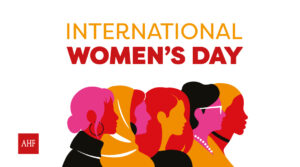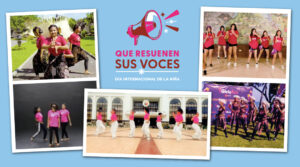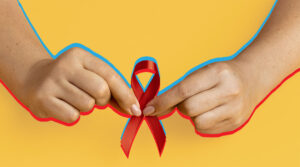Information on sexuality remains limited, even in the midst of this age where knowledge on countless topics is just a click away. However, not all people have the same access to the Internet or to the technological tools that allow them to access this information, and this is the case of people with an intellectual disability.
Intellectual disability is defined as significant limitations in both intellectual functioning and adaptive abilities, which can be conceptual, social, and practical; this is stated by the American Association of Intellectual and Developmental Disabilities.
It should not be forgotten that this concept refers to multiple types or levels of disability, since there is a wide variety of causes for which someone may have these conditions, which by definition also present before the age of 18, that is, that is, from birth or during the first stages of life.
Sexual and reproductive health is for everyone
Very often, intellectual disability has been perceived only as a deficiency, and based on it, people are excluded from certain activities, environments or groups.
However, as the Spanish Confederation of Organizations in favor of People with Intellectual or Developmental Disabilities (FEAPS) points out, diagnosing a disability of this type should lead to some benefit, since “it cannot remain a mere analysis of limitations”.
The benefit sought is that, from identifying the disability, a profile of support needs is developed, which, when covered, facilitates a better quality of life for the person.
This is where sexual and reproductive health strategies must become fully inclusive. People with this disability are often seen as asexual, or are overprotected and it is assumed that they will never exercise their sexuality.
But the first step towards inclusion is recognizing that sexuality is an integral part of being human, and that we all have the right to express or experience it freely and safely.
Voices that want to be heard
No support program for people with disabilities should be designed if these people do not participate in that design. It is essential to respect their autonomy, listen to their needs and wishes so that the strategies respond efficiently to what those involved want.
For example, in a document called “Manifesto for the rights of women with intellectual or developmental disabilities”, in 2014, Spanish women belonging to the FEAPS pointed out among their main problems:
- Many of us are not allowed to have a partner
- Those of us who have a partner cannot have a normal life as a couple, like living together
- We have no privacy
- Society does not respect when we are with our partners
- We need to go to the gynecologist like all women
- Some of us have been sterilized without consulting us
Therefore, they demanded the following:
- We want to decide about our life
- Society must understand that our sexuality is important
- We have the right to have a partner and live as a couple
- We have the right to form a family
- We need support to be independent
- We demand that they teach us to protect ourselves from abuse and violence
Support autonomy
The prejudices that exist about people with intellectual disabilities (that they don’t know, that they don’t learn or that “they are like children”) are the main obstacles to providing them with information about sexuality.
For this reason, the FEAPS points out that these people do not need to “learn a different sexuality, but rather receive information adapted to their understanding abilities” about sexual development, knowledge of the body (theirs and that of others), respect, responsibility about their own behaviors, desire, pleasure, love and the couple.
To provide true support to this population, it will be necessary to adapt the topics to be addressed and provide them with the necessary tools, as many times as necessary, so that they have a true learning about their sexuality.
Knowledge about sexual and reproductive health is a right of all people, and more work is needed to reach everyone who needs it. At AHF Latin America and the Caribbean we work every day so that HIV health services reach the majority of the population. If you haven’t done so yet, locate our nearest office and find out about our services.






